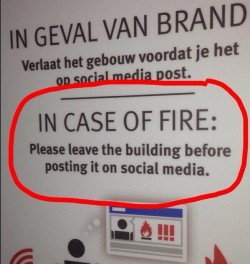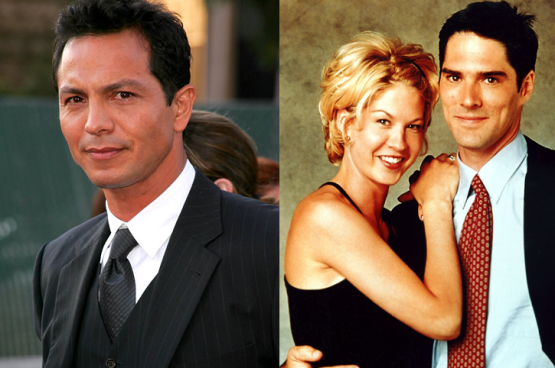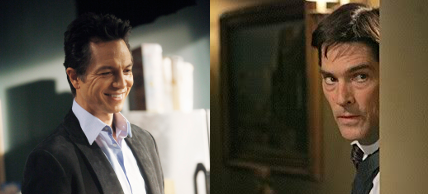Blog Archives
Typically, it’s female actors who have to worry most about the effects of aging. Producers and casting directors tend to favor younger, and younger-looking actors for both genders, to be sure, but it tends to be more pronounced with women. There are more role niches for aging men than women. This is part and parcel of more general trends, where men are also allowed to be fat more frequently than women.
They don’t have to be young heartthrobs. Often, though, they are. Hollywood does like its hunks.
As a straight male, I’m not an expert at assessing male attractiveness to women. But I do read things, and I do have eyes and see some guys that I think have to be attractive to women.
Thomas Gibson and Benjamin Bratt are two such people. I see those guys and think to myself “Those are especially good looking guys.” Even by Hollywood standards. (Note, the picture of Bratt – left – isn’t the best.)
For such attractive men, it seems like both of them have aged particularly poorly. Neither of them are what I would consider unattractive, but there used to be a magic in their appearance that seems gone now. They seem less like “pretty attractive men” and more like “aging hunks.”
It is probably related to the fact that I got to “see” most of them when they were at their peak and it’s hard not to compare them to that.
Bratt is in Private Practice, which I’ve commented about a couple of times here. On the show, he is presented as being extremely attractive. He just doesn’t quite look the part anymore. It feels like the opposite of Carol on Growing Pains, where the writers just decided that she was fat even though the actress, Tracey Gold, wasn’t. Gold would later go on to develop a serious eating disorder.
Better this than the alternative, I suppose. If it were decided that Bratt were the unattractive character, he might have mutilated himself.
A few months ago, I upgraded from the Samsung Galaxy S3 to an S5. I wasn’t expecting a huge difference, but I figured with the increased processing power and bigger screen, those differences I noticed would be in the positive. They were, as far as that went. That paled in comparison to one adaptation that took a new phone and made it actively worse than its two-year-old predecessor.
Specifically, I was suddenly extremely restricted in what I could do with my external SD card. For instance, I could no longer take files off the computer network and copy them directly to the card. The reasoning was that it was a security precaution:
This keeps things “tidy.” Apps aren’t dumping files everywhere on the card — something we’ve all encountered — and instead have one central location to put all their files. There also are some serious security concerns that were addressed by not letting an app write files just anywhere.
This means that Jerry’s Awesome Photo Viewer app can still scan your entire system for images, build a thumbnail database of them all and save it to a folder on the SD card. But it can’t move or save the pictures themselves to folders — including the Pictures folder — on the SD card because it does not “own” those folders. If programmed right, it could save copies of the pictures to Jerry’s Awesome Photo Viewer’s own folders on the SD card. The folder is part of the app, and if you uninstall it, the folder goes, too. The old method of putting anything anywhere you want is gone, forever.
The author asks whether I want it to be “easy” or “secure.” In fact, what I really wanted was the ability to do something that I consider to be unremarkable and not-particularly-risky, without having to take intermediate steps.
Which is to say that I am not hugely invested in the Open vs Closed debate. I am perfectly fine with Closed as long as I can do what I want and have the features that I want. It’s my experience that the more open a system is the more likely I am to be able to do that, but up until this I never (for instance) felt the need to root my phone because I could do what I wanted on it without going to the trouble and voiding my warranty.
This changed that. It could have been avoided with a more intermediate computer step (apps cannot write to the SD card without the users’ express consent each time). More to the point, it could have been avoided by having a capable file management application included with the phone with the appropriate permissions.
Google, though, isn’t particularly interested in that. They are more interested in trying to dictate how we use the device, which is to say that they appear not to want us to be able to sift through the file structure at all.
They have their reasons, of course. The end result to all of this, though, is that they tipped my hand and forced me to finally look into how to root my phone. Which I’ve done, disabled the security feature, and can now get my 2014 phone to do what my 2012 (and 2010, 2008, 2007…) phone could without question.
Of the major mobile operating systems, Android is still the lesser of evils. Unfortunately, a lot of the trust has been lost here. Now instead of wondering what cool thing the next version of Android will do, I am worried about what feature the next version of Android will take away.
 Some people avoid Gmail because they don’t want Google having access to their private lives. The problem is, whether you use Gmail or not, they already have access to most of them.
Some people avoid Gmail because they don’t want Google having access to their private lives. The problem is, whether you use Gmail or not, they already have access to most of them.
Of course: Drones are being deployed for crowd control.
In a country where everyone likes to think of themselves as middle class, “rich” is a moving target. Just ask Hillary Clinton, who may suffer from Status-Income Disequilibrium.
Isolation is unhealthy. But unhealthy relationships are also unhealthy. So what to do?
Teenage test scores do a pretty good job of predicting future income in the aggregate. There’s a lot of noise, however.
Josh Barro makes the straightforward case that no, unbundling cable would probably not save you money.
Charles Orlando goes undercover to find out why women cheat.
Kenneth Arnold made flying saucers famous.
Razib Khan decoded his newborn son’s DNA.
Every Russian novel ever written.
Chili’s is installing tablets in its restaurants. Not only can that help them spread the waitstaff out further, but people tend to order more.
Millenials are discovering that Washington DC may be too expensive, long-term. Fortunately, the city is responding to housing concerns by preserving row-houses at the expense of denser condos.
Millenials may not be so different in their housing preferences than previously supposed. A greater percentage of them live in the suburbs in 2010 than in 2000.
In Texas, Millenials are preferring Houston and San Antonio over Dallas and Austin.
Several years ago, Heritage came out with a fascinating look at the demographics of those who enlist in the military. I wrote about it here. BusinessInsider has done a report here:
Differences exist at the regional level as well. In 2013, 44% of all military recruits came from the South region of the U.S. despite it having only 36% of the country’s 18-24 year-old civilian population.
On the above map, some of the lowest rates of state-by-state enlistment are in New England and the Northeast, Maine notwithstanding. The Northeast of the U.S. was the most underrepresented region of the country for recruitment in 2013: Despite having 18% of the 18-24 year-old civilian population only 14% of new enlistments came from this area.
Among the more interesting of Heritage’s results were the economic backgrounds of the enrollees, which were less skewed towards the poor as we might think. Unfortunately, BI just looked at states. It is likely that the socioeconomic profile changes as the military’s needs do. The more soldiers that are needed, the lower the standards have to be, and the lower the standards are, downward on the SES scale the average enlistee is. And wartime changes the profile, I’m sure, though I’m not sure how much.
But comparing what we can, state-by-state data, what are the similarities and differences? There are more similarities than differences. Red states tend to be more represented than blue, though with low numbers for North Dakota and Utah and high numbers for Maine. High representation in the South (Louisiana excepted), and low representation in the Northeast (Maine excepted).
There are some differences, however. Montana has gone from a high-representation state to a mid-range state. This most likely relates to the increased economic opportunities for high school graduates either in Big Sky Country or next door in North Dakota (which was then, as is now, a very low-rep state). I don’t know why Mississippi would go from a blow-average to above-average state, so I would guess it is either less economic opportunity in the Gulf (pollution’s hand in the fishing economy, the drilling moratorium) or just statistical noise. Nevada is a curious case, as their economy was stronger in 2007 than it is now, but enlistment rates have fallen from among the highest in the country to something closer to mid-range.
Regionally, North West Central has joined New England as the least enlisted (probably relating to other economic opportunities) while the South Atlantic (Florida up to Maryland) has overtaken West South Central (Texas and company) as the most-enlisted region. Perhaps related to more opportunities in Texas and Florida’s housing bust, or perhaps something else.
Science and Walmart have come through with a superior ice cream sandwich that doesn’t melt!

The mystery of giant concrete arrows on the American landscape, solved.
If the Fox takeover of Time-Warner succeeds, it could make for some really interesting superhero movies.
The bizarre story of the Dutch cyclist who had tickets to two Malaysia Airlines flights that met with a tragic end.
When someone falls for a joke in the form of a smear, it says more about them than it does the object of the joke/smear. Just own it and move on (like ThinkProgress did).
Maybe sunk costs aren’t sunk after all?
Will Davies makes the case against competitiveness.
Flextime is apparently a nice perk that you should never actually use. Here are some tips for waking up earlier. One of the best decisions I ever made about such things was to never, ever use the snooze button again.
It’s very lucrative to do the dirty work of oil companies. (And I don’t mean dirty in the sense of sweat and dirt or you might get oil on you…)
A new nuclear power plant design floats on the water and could ride out a tsumani.
Privilege I can believe in: The privilege of being good-looking.
Everything you ever wanted to know about astronaut outfitting.
Is the monopoly of copyright a lost cause? It’s sure seeming that way, though it’s hard to gauge all of the implications of that.
Pirates are complaining that the software they are illegally downloading takes up too much space.
WordPress spends considerable money complying with DMCA takedown notices, some of which are not legitimate. They’re demanding $10,000 for a false notice.
I get that smartphone theft is lucrative for the carriers and handset producers, but the most apparent solution would likely involve cracking down on all reselling, which is a cure worse than the disease.
It’s a win for fliers that we can use electronics during takeoff and landing. It’s a loss for SkyMall.
The immigrants of yesteryear were apparently smart to Americanize their name at Ellis Island. Writers, too, should choose their name carefully.
In addition to being careful about your name when you’re looking for a job, you should keep quiet about your religion, too. Unless you’re Jewish, because everyone likes the Jewish.
The case for kissing ass and faking it until you make it.
Either interesting facts about MOOCs.
It seems to me that one of the most challenging aspects of running a dating site is the degree of caution people – women in particular – is the wheat-from-the-chaff problem. Namely, differentiation between losers (and worse) and non-losers, and the serious from the unserious.
This is particularly a problem on the free ones (I don’t know if they exist anymore) or those with a monthly fee where it was most economical for a guy to shoot as many messages as possible and for the women to have to wade through them. Or vice-versa, but usually not.
One of the ways around this, of course, is to charge people money. LavaLife charged you each time you reached out to somebody, which was good at making sure that I only reached out when I was genuinely interested and probably cut back on the amount of sausage-spam the ladies got.
I was on a high-end site for a year. I couldn’t believe I was spending that much money, but the barrier actually proved to be a good thing. If I was paying that much, it did signal that I wasn’t a deadbeat. And if they were paying that much to be on the site, I could be sure that every message I sent out would almost certainly be read. Indeed, I got as many reach-outs on that site as I did on any other. There weren’t a whole lot of people, but cost was its own selection mechanism.
Of course, the “not a whole lot of people” proved problematic for the business, which disappeared shortly after my subscription expired. But if I had it all to do over again (and I hopefully won’t), I would probably not be thrifty about it because cost can have its own benefit.
There is a new site called Wyldfire that seeks to filter without too-high costs. A referral system:
“We’ve discovered that when it comes to dating apps, men will go anywhere where women go, but women won’t go anywhere men go unless it’s worth their time,” says Sarah Cardey, the director of operations and marketing for Wyldfire. “But if women are the ones creating the community and are accountable for the type of people they let in, we feel like we could make a dating app women can be proud of.”
This is the guiding principle behind Wyldfire (yes, “wild” is spelled with a “y,” a la “Wyld Stallyns” from Bill and Ted), a mobile dating app set to launch early next month. Unlike Tinder and other dating apps, which have no screening processes to filter out crotch shot-requesting creepsters, Wyldfire automatically filters out weirdos by having female users select men to invite to the app (you can invite users anonymously if you so choose by sending them a “feather,” or request to join, via Facebook or e-mail).
Dating apps may or may not be a saturated market, but it’s an interesting angle.
Meanwhile, I still haven’t figured out why Facebook hasn’t created the ultimate match site yet.
One of those listicles covering characters who disappeared from TV shows without explanation. It’s an odd list as some of them I thought sufficient explanation was given, like Erica Hahn from Grey’s Anatomy. She was dumped and humiliated when she made her exit, so I’d figured she just wanted to get the heck out of Seattle. They got Denise Huxtable wrong, who wasn’t on The Cosby Show when Money got pregnant (she was on A Different World), as well as Tori from Saved By The Bell who actually alternated with (as opposed to replacing mid-season) Kelly and Jessie. Minkus from Boy Meets World gets an entry (but not Mr. Turner, limiting themselves to one per show I guess). Though I don’t typically mind switching out casts, one of the ones that drove me crazy was Nikki Faber from Spin City.
 Faber, played by Connie Britton, was Michael J Fox’s character’s love interest for three seasons. It was pretty well done with a very good build-up. They actually got me to care about the answer to the “Will they? Won’t they?” question that writers are always wanting us to care about. They did!
Faber, played by Connie Britton, was Michael J Fox’s character’s love interest for three seasons. It was pretty well done with a very good build-up. They actually got me to care about the answer to the “Will they? Won’t they?” question that writers are always wanting us to care about. They did!
Then the very next season, they signed Heather Locklear as a cast regular as Caitlin Moore, and Mike and Nikki broke up at the opening of the season to make room for Mike/Caitlin, which I never cared as much about. When Fox left the show due to his health, it became Charlie/Caitlin with Charlie Sheen’s character. Which actually worked better, as far as that goes. Nikki disappears at the end of that season.
Later on during Sheen’s run on the show, Fox returns for an episode where he is engaged to be married and he’s using his affiliation with the mayor to check out of the whole thing (too busy to focus on the wedding, that sort of thing). Anyhow, that would have been a perfect opportunity for old school viewers like myself if Mike and Nikki had ended up together after all. But no, it was some other character. Boo.
Perhaps Britton was busy or too expensive. But it would have been almost as cool as Minkus’s return to Boy Meets World.
 Is Canada home to the nation’s biggest housing bubble?
Is Canada home to the nation’s biggest housing bubble?
Successive extentions and alterations of copyright law have limited our access to over fifty years of culture.
As software has come to control ever-increasing parts of our lives, it might behoove us to start coding better.
Teachers often feel like they are the punching bags of the current education debate. It turns out that they are still among the highest thought-of jobs, and have become moreso over the last twenty-five years.
The Dragonlance novels had an indelible influence on Dungeons and Dragons.
The debate around the efficacy of Alcoholics Anonymous has bounced around back and forth over the years. Penn & Teller made waves by declaring it bullpucky. Keith Humphreys argues, however that it’s actually as effective as psychotherapy.
Richard Nixon is often used as a punching bag in discussions about the Drug War, but it turns out that may not be so accurate.
Good news! We’re better at keeping drug use out of our prisons than is commonly perceived.
Important: The history of the ramen noodle.
According to tailor Charlie Allen, American business suits are for slobs.
Ben Shrecklinger argues that we should do away with the seven-day week. I’ve probably thought about it in the past, but while days are earth axis rotations and months are lunar rotations and years are revolutions around the sun, weeks are cultural.
Models for stock photography have no idea where their image will turn up. Digiday interviews a guy who turned up on Cialis ads.
Eric Barker explains the scientific method to a great first date.
A lot of people think that hosting the Olympics is a huge waste of resources. Cities themselves are coming around to this view.
Stephen Marche explains how Dead Poets Society has ruined our literary culture, while Robert Pindiscio worries that modern curricula and incentives are teaching young people to mostly write about themselves.
Ever wonder why it’s expensive rather than bargain hotels that charge for WiFi?


